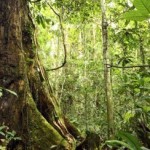More recently, the Barbadian Government has implemented several plans to further stimulate the use of solar electric systems. For example, from the USD 5,000 allotted per year under the 2008 modified Income Tax Allowance for Home Improvement, up to USD 1,000 can be used for energy audits.
The import duties on renewable energy electricity systems and VAT have been reduced to zero and companies involved in their development, installation or manufacturing are eligible for a 10-year tax free holiday. Financial incentives for manufacturers, such as the provision of low-interest loans by the Barbados Government, may further serve to assist the diversification and growth of the solar water heater industry.
During the November 2012 Energy Week of activities, Prime Minister Stuart stated, “In the same way that we pride ourselves on the penetration of solar water heaters, the next frontier is the erection of solar electricity systems and the use of other renewable energy sources.”
In that vein, the Government is rolling out a programme to outfit 19 government buildings, including nine schools, with solar photovoltaic systems. Prime Minister Stuart said that the initiative would “capture the interest and imagination of the next generation which will give impetus to this effort in making renewable energy truly the engine of the economy.”
He also said that similar energy systems would be installed in hurricane shelters, which would also be equipped with the necessary back-up power to enable them to function effectively in the event of a hurricane or any other emergency.
With respect to transport, the Barbados Government has also piloted the design and deployment of electric vehicles at their number one natural attraction, Harrison’s Cave. In addition, there have been innovative tours with solar/electric trams of the historic city of Bridgetown – which has recently been designated as a World Heritage Site by UNESCO – since 2005.
These efforts combine the Government’s thrust to protect its natural and cultural heritage products while demonstrating innovative, Small Island Developing States-appropriate climate change mitigation opportunities.
In 2012, Barbados and UNEP launched the “Green Economy Scoping Study – Barbados Synthesis Report”, which was designed to identify challenges and opportunities in the island’s transition to a Green Economy, and to accelerate that transition.
Projects and events in Barbados to celebrate WED will take place over five days. They will focus on climate adaptation technologies, business, sustainable resource management, protected areas, schools, and Barbadian local culture, as well as spotlighting challenges and opportunities facing Small Island Developing States around the globe.
About World Environment Day
The celebration of World Environment Day began in 1972 and has grown to become one of the main vehicles through which the United Nations encourages positive action for the environment. WED activities take place year round but climax on 5 June.
Through WED, UNEP enables everyone to realize not only the responsibility to care for the Earth, but also reminds one and all of their individual power to become agents of change. Every action counts, and when multiplied by a global chorus, becomes exponential in its impact.
WED is a big celebration, engaging millions across the globe through events on the ground in over 100 countries. Every year, participants, young and old, organize clean up campaigns, art exhibits, tree-planting drives, concerts, dance recitals, recycling drives, social media campaigns and different contests themed around caring for the planet.
Source: UNEP.














